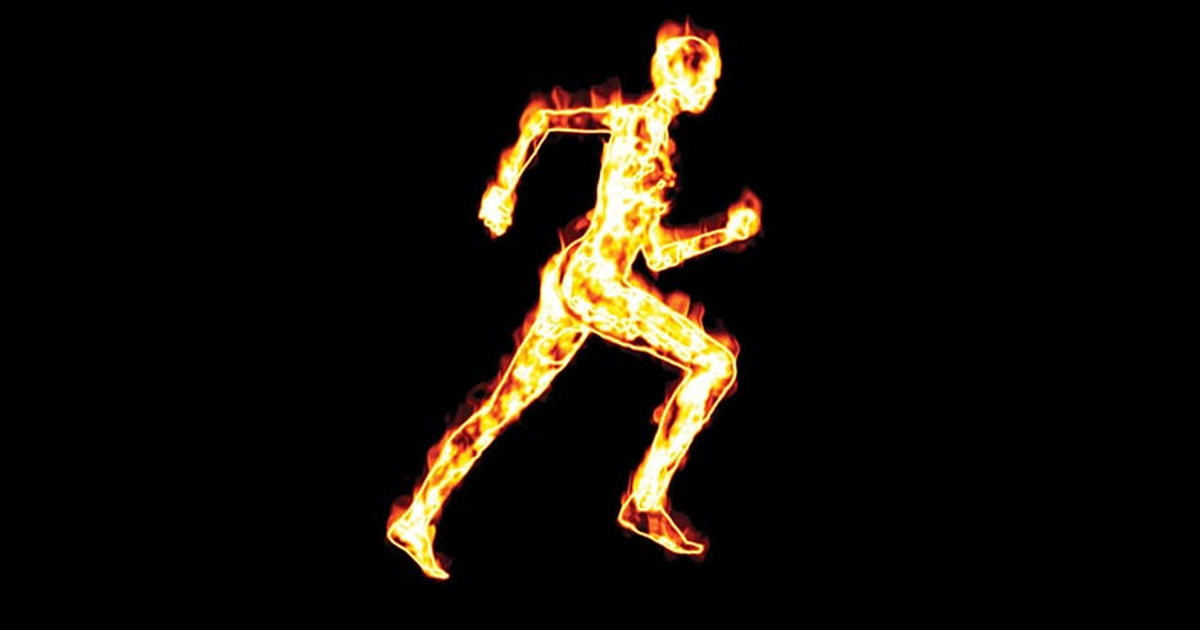Everything you need to know about METABOLISM

Metabolism refers to all the processes through which the body uses energy. These processes include breathing, digestion, muscle development and fat assimilation. The main component of metabolism is basal metabolism, that is, the amount of energy that the body needs to perform vital processes (respiration, blood circulation, body temperature regulation, renal function, etc.) in rest. Basal metabolism accounts for about 60-75% of the body's energy expenditure, and its value depends on a variety of factors.
What is the metabolic rate?
Metabolism is often confused with the metabolic rate, but the metabolic rate means more precisely the rate at which the body burns calories. The metabolic rate is influenced by the percentage of fat, people with a higher percentage of body fat have a lower metabolic rate than those with a higher percentage of muscle.
What are the factors that can increase your metabolic rate?
Studies have shown that the body consumes more energy when we have a diet rich in protein.
Who has a higher metabolic rate, women or men?
Men have a higher rate of meta-logism than women because they have a higher percentage of muscle mass.
Factors that influence metabolism
The rate of metabolism is influenced by a multitude of factors:
- Age - Metabolism rate reaches peak at puberty, then decreases progressively. This is reduced by 2-3% every 10 years. That's why many people gain weight when they get older, although they maintain the same eating habits.
- Gender - Women have a 5-10% lower metabolic rate than men with the same weight, largely due to differences in body composition.
- Body mass - of course, the metabolic rate increases with weight, requiring greater energy intake to support the body's expenditure, especially due to higher body surface area.
- Body composition - Muscle and internal organs have a net energy consumption superior to adipose tissue.
- Hormonal status - thyroid disorders can decrease (lack of thyroid) or increase (hyperthyroidism) metabolic rate. Also, hormones released during stress or emotions (adrenaline, noradrenaline) help increase the metabolic rate by up to 15%.
Who controls metabolism?
The thyroid gland controls metabolism by producing hormones that influence how quickly calories are burned, when fat is assimilated and how the body responds to other hormones.
Does intense exercise slow you down by changing your metabolic rate?
The doctors' opinion is that yes. After a session, the body will maintain an accelerated calorie burning pace for several hours. Citing a Norwegian study in 2003, this phenomenon - known as post-workout - has direct consequences on metabolism, and is all the more intense as exercise is more demanding.
Basically, if you want to burn as many calories, the intensity matters more than the time when it comes to sports. After a series of exercises that have asked for maximum muscle, the post-workout effect collects about 15-20% of the total calories consumed during exercise. In the case of moderate exercises, the burn rate would reach only 10%.
For example, if you do 30 minutes of aerobic, you burn 400 calories during exercise and another 60-80 calories per hour after, after a post-workout effect. Instead, if you go for an hour, you burn 500 calories, and as a post-exercise effect, you still consume 50 calories per hour.
What happens to the metabolism if you consume less than 1200 kcal a day?
If a person begins to consume less than 1,200 calories per day, the metabolism will burn less to cope with insufficient resources. There is now a series of controversy about the amount of minimum calories we should eat without interfering with the metabolic rate, with scientists oscillating between 1,000 and 1,200 calories.
Caffeine and spicy foods increase metabolic rate?
Caffeine is a stimulant by definition, therefore increases metabolic rate. Therefore, caffeine is among the ingredients found in supplements for weight loss. Studies have shown that a cup of coffee can increase the metabolic rate by 4%.
Spicy foods also increase the metabolic rate, especially those containing hot peppers.